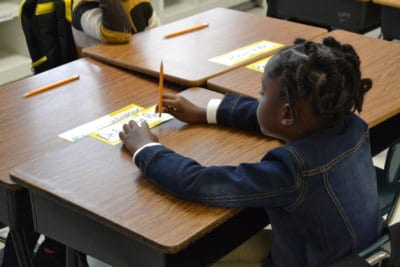

Go to https://www.monticello.org/, and you will find more than 900 Thomas Jefferson quotes, on topics ranging from agriculture to architecture, from liberty to old age — and on slaves, by the complex man who owned them. Enter the word “education’’ in the search engine, and you get 64 quotes from the nation’s third president.
The purpose of education is, Jefferson said, “to give to every citizen the information he needs for the transaction of his own business…To understand his duties to his neighbors and country and to discharge with competence the functions confided to him by either…. And, in general, to observe with intelligence and faithfulness all the social relations under which he shall be placed.”
In establishing a democratic republic, the founders recognized that the nation would need educated citizens not only to thrive in commerce but also to carry out the duties and responsibilities of self-government. The need remains manifest today in the wake of an extraordinarily contentious presidential campaign in which the victorious candidate, Donald Trump, conducted a campaign punctuated with insults, inaccuracies, and injury to core democratic values.
President-elect Trump now occupies the post-election breathing space in which most Americans wish him well for the sake of the country, while also waiting warily for how he will assemble and conduct a government. Amid persistent protests and scattered reports of school-based taunts and bullying, Trump is a polarizing figure in a polarized country.
His incendiary campaign presented challenges to educators, and should he govern much as he campaigned, challenges will remain and perhaps intensify. He rose to power by touching anxieties arising from economic and cultural change, while his campaign also fueled an elevation of fringe conservatives known as the “alt-right.’’
Two days after the election, the Century Foundation, a 97-year-old “progressive nonpartisan think-tank’’ in New York City and Washington DC, issued a report decrying a “crisis in civic education in our schools.” The report speaks directly to the implications of the Trump campaign for the nation’s schools.
“The rise of a candidate who questioned several elements of constitutional democracy — including freedom of religion, freedom of the press, the rule of law, the independence of the judiciary, and the peaceful transition of power following elections — should serve as a Sputnik moment for civics education and the need to model democratic values in how our schools are run,” says the Century Foundation report. “Just as Soviet technological advances triggered investment in science education in the 1950s, the 2016 election should spur renewed emphasis on the need for schools to instill an appreciation for liberal democratic values.”
The authors of the report, “Putting Democracy Back in Public Education,’’ are Clifford Janey, a former schools superintendent in Newark, Washington, and Rochester, and Richard D. Kahlenberg, senior fellow at the foundation. North Carolina educators may recognize Kahlenberg for his research and analysis of the Wake County policy to achieve socio-economic balance.
To be sure, it’s not the role of public schools as institutions to engage in partisanship or to organize opposition to the president-elect — although teachers and administrators retain the right to vote, to speak, and to active citizenship. As the Century Foundation argues, what is needed is a “curriculum of rigorous courses in history, literature and civics (that) can cultivate knowledge of democratic practices and a belief in democratic values.”
The Education Commission of the States has long advocated the adoption of civic education policy. It houses a Center for Learning and Civic Engagement and has issued a stream of reports.
An ECS report from 2014 declared: “Despite this knowledge of the importance of civic engagement and participation for academic achievement, students’ opportunities as a part of school learning are largely determined by socioeconomic status. This ‘civic empowerment gap’ means that students in poorer communities have fewer opportunities to develop the skills and dispositions necessary for full participation in democratic life.”
“While many individuals and organizations have sought to address the poor condition of civic education, the problem remains acute. Strong state policies are needed to establish and reinforce the fact that preparation for civic life is equally as important as — and important for — preparation for higher education and careers. In fact, preparation for active citizenship was a foundational principle of public education in America from its beginning, and it is a principle that must be reaffirmed by each generation.’’
As the United States becomes a genuinely multi-ethnic country and as the nation confronts cultural and economic divisions, educators have a critical role in advancing among young Americans an appreciation of the values and demands of a democracy. It’s the task of the common schools to inculcate a sense of common nationhood.


